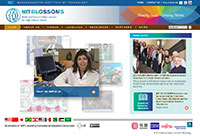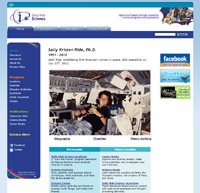 |
General Science Specialized Areas People in Science Kids & Parents
General Science
MIT Blossoms This video library of over 100 math and science lessons are freely available to educators and include teacher guides, downloadable handouts and additional resources that are relevant to each topic. |
World Science U Education for everyone at all levels of interest and knowledge. Sign up to receive access to Science Unplugged: Quick answers to hundreds of questions, unscripted, uncensored; Short Courses: 2-3 week explorations with no homework and no prerequisites; and University Courses: 8-10 week courses for when you want to get serious. |
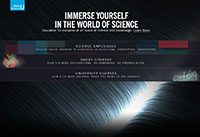 |
Sally Ride Science Dr. Sally Ride, best known as America's first woman in space, founded Sally Ride Science in 2001 to create quality programs and products that educate, entertain, engage and inspire boys' and girls' interest in science, math and technology. |
Global Educational Outreach for Science Engineering and Technology (GEOSET) The Global Educational Outreach (GEO) initiative uses new technology to provide outstanding Science, Engineering and Technology (SET) teaching material. It is a flexible format enabling a wide range of different educational approaches to be explored, which is particularly useful for teachers who will find valuable downloadable teaching resource material created by some of the best science and technology experts and educators. All material featured on this website is free to view and download. |
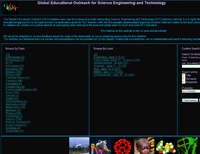 |
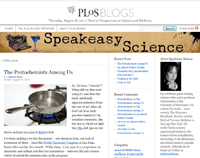 |
Speakeasy Science Blog author Deborah Blum is a Pulitzer-prize winning science writer and a professor of journalism at the University of Wisconsin. She's written five books – most recently The Poisoner’s Handbook: Murder and the Birth of Forensic Medicine in Jazz Age New York. Her earlier books concern supernatural research, the science of love and affection, the biology of sex differences, and ethical issues in primate research. |
The National Science Digital Library NSDL is the National Science Foundation's online library of resources and collections for science, technology, engineering, and mathematics education and research. Resources available through NSDL include images, video, audio, animations, software, datasets, and text documents such as lesson plans and journal articles. In addition, NSDL provides search, browse, help, blogging, collaborative workspaces, collection creation and management services, news reports, and online community discussions. Access to and use of the website is completely free. |
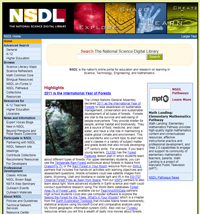 |
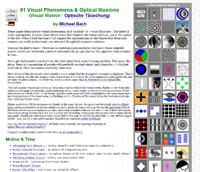 |
91 Visual Phenomena & Optical Illusions This website features a fun (and extensive) list of visual illusions. Each entry includes directions for viewing the visual, what you should be observing, a discussion of the concepts, and sources. The site succeeds in offering an entertaining way to experience the way our visual system tries to make sense of what we see. Some of these phenomena also appear in Prof. Shakhashiri's newly released Chemical Demonstrations: A Handbook for Teachers of Chemistry, Volume 5, which deals with Color, Light, Vision and Perception. |
ACS Middle School Chemistry This site, sponsored by the American Chemical Society, offers complete lesson plans with hands-on demonstrations designed to teach basic concepts. Lesson one, for example, looks at the behavior of atoms and molecules through the use of water and teaches the basic behavior of atoms and molecules. All the material can be downloaded free, including videos which can be used to extend the lessons. The material also describes games that can be played with the materials such as racing water droplets across waxed paper. We highly recommend these inquiry-based lesson plans--they are a great example of the principle of learning by doing. |
 |
 |
National Lab Network National Lab Network is a nationwide initiative to build local communities of support that will foster ongoing collaborations among volunteers, students and educators. |
Encyclopedia of Earth This site is a free collection of articles written by scholars, professionals, educators, and experts who collaborate and review each other's work. The articles are written in non-technical language in order to be useful to students, educators, scholars, professionals, as well as to the general public. The site's stated goal is to be the largest reliable information resource on the environment in history. From the Encylopedia of Earth: |
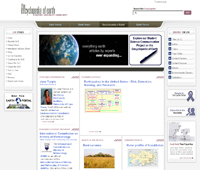 |
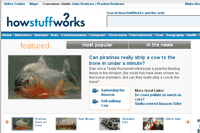 |
How
Stuff Works Ever wonder how a plasma display works, or a coffee maker, or a diesel engine or even a mortgage? Want to know what to do when your car’s “check engine” light comes on? If so, this is the site for you. It’s run by a private company and contains advertising and marketing for its own products, but it’s loaded with clear and accurate information. |
Exploratorium This site is run by the San Francisco Exploratorium, a non-profit organization which has more than 650 science and arts displays at the San Francisco Palace of Fine Arts. The site has more than 15,000 web pages explaining the science behind music, sports, weather, cooking and many more subjects and also offers live webcasts. The site gets more than 15 million visitors a year. |
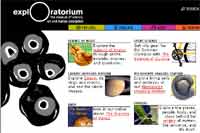 |
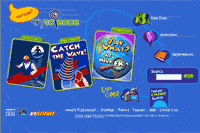 |
Try
Science This site is a partnership between IBM, the New York Hall of Science and the Association of Science-Technology Centers. It has dozens of experiments you can do at home, on-line interactive adventures, a guide to many science centers and science field trips, and live cams from many science and technology centers worldwide. |
Nova The web site for the award-winning Public Television series lets you watch or read transcripts of hundreds of programs and offers interactive material to go with each program. Programs can be searched by category. It also has teacher’s guides for the programs and sells DVDs and videos of programs. |
 |
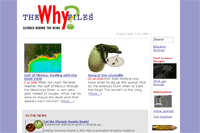 |
The
Why? Files This site was started by the National Institute for Science Education and is now run by the University of Wisconsin-Madison Graduate School. It has a new science article every week–there are now hundreds in the archives as well as many images and interactive features. The articles are accessible but not dumbed down, and the site has won many awards. |
PBS
Kids ZOOM PBSKidsZOOM. This site has lots of experiments and activities to do at home, from the PBS kids show. |
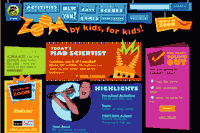 |
What's
That Stuff? What’s That Stuff? Home page of the on-line version of Chemical and Engineering News. Great articles on 40 common items from baseballs to jell-o to kitty litter! |
 |
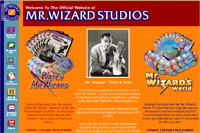 |
Mr
Wizard Studios Mr. Wizard Studios, the web site of Don Herbert, television’s Mr. Wizard. “Watch Mr. Wizard” went on the air in 1950 and ran for more than 500 episodes. Herbert has been an inspiration to Professor Shakhashiri, who dedicated the fourth volume of Chemical Demonstrations “To Don Herbert...who has perfected the art of communicating science to kids of all ages.” The site has video clips, a newsletter for teachers, and offers books and DVDs of programs. |
NCES Students' Classroom Students Classroom, from the National Center for Education Statistics. This unique site allows students to test and compare their science and math knowledge with students in the rest of the world. Each question has an explanation of the answer and links to other good sites that elaborate on the answers. |
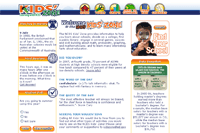 |
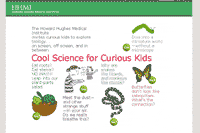 |
Cool
Science for Curious Kids Cool Science for Curious Kids, from the Howard Hughes Medical Institute, has several interactive lessons designed for grade school kids.
|
